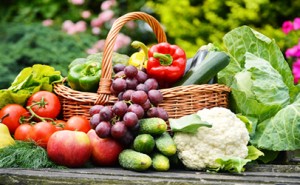Organic Frarming
“Organic agriculture is a holistic production management system which promotes and enhances agro-ecosystem health, including biodiversity, biological cycles and soil biological activity. It emphasises the use of management practices in preference to the use of off-farm inputs. This is accomplished by using, where possible, agronomic, biological, and mechanical methods, as opposed to using synthetic materials, to fulfill any specific function within the system.” – definition proposed for adoption by FAO/WHO Codex Alimentarius Commission
Many techniques used in organic farming – such as inter-cropping, mulching, and integration of crops and livestock – are practiced under various agricultural systems. What makes organic agriculture unique is that, under various laws and certification programs, almost all synthetic inputs are prohibited, and “soil building” crop rotations are mandatory. Properly managed, organic farming reduces or eliminates soil and water pollution and helps conserve water and soil on agricultural lands. Organic farming is one of several approaches to sustainable agriculture.
Organic agriculture is gaining importance in the agriculture sectors of many countries, irrespective of their stage of development. In Austria and Switzerland, organic agriculture has come to represent as much as 10% of the food system, while USA, France, Japan and Singapore are experiencing growth rates that exceed 20% annually.
Typically, farmers experience some loss in yields after discarding synthetic inputs and converting their operations to organic production. Before restoration of full biological activity (e.g. growth in beneficial insect populations, nitrogen fixation from legumes), pest suppression and fertility problems are common. Sometimes it may take years to restore the ecosystem to the point where organic production is possible.
In these cases other sustainable approaches that allow judicious use of synthetic chemicals may be more suitable start-up options. One strategy involves converting farms to organic production “in installments”, so that the entire operation is not put at risk.
Most studies have found that organic agriculture requires significantly greater labour input than conventional farms. Therefore, the diversification of crops typically found on organic farms, with their different planting and harvesting schedules, may distribute labour demand more evenly, which could help stabilize employment.


